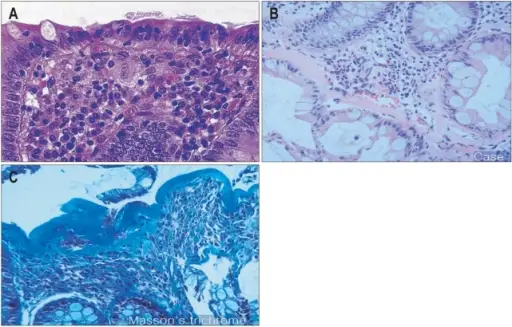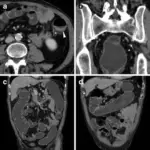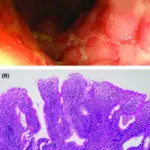Microscopic colitis is an inflammation of the large intestine colon that causes persistent watery diarrhea. The disorder gets its name from the fact that it’s necessary to examine colon tissue under a microscope to identify it.
What is the Pathology of Microscopic Colitis?
The pathology of microscopic colitis is:
-Etiology: The cause of microscopic colitis is unknown but it is associated with autoimmune disorders, such as celiac disease.
-Genes involved: None.
-Pathogenesis: The sequence of events that lead to microscopic colitis are: The underlying mechanisms involved in the pathogenesis of microscopic colitis remain unspecified but is probably multifactorial. Collagenous colitis and lymphocytic colitis may represent specific mucosal responses to different luminal agents in predisposed individuals, resulting in an uncontrolled immune response.
-Histology: The histology associated with microscopic colitis shows different changes in tissues.
How does Microscopic Colitis Present?
Patients with microscopic colitis typically females present commonly at 50 to 70 years. The symptoms, features, and clinical findings associated with microscopic colitis include chronic watery diarrhea, abdominal pain, cramps or bloating, weight loss, nausea, fecal incontinence, and dehydration.
How is Microscopic Colitis Diagnosed?
Microscopic colitis is diagnosed by colonoscopy with a biopsy.
How is Microscopic Colitis Treated?
Microscopic colitis is treated by antidiarrheal medication such as Pepto-Bismol or Imodium.
What is the Prognosis of Microscopic Colitis?
The prognosis of microscopic colitis is good.



